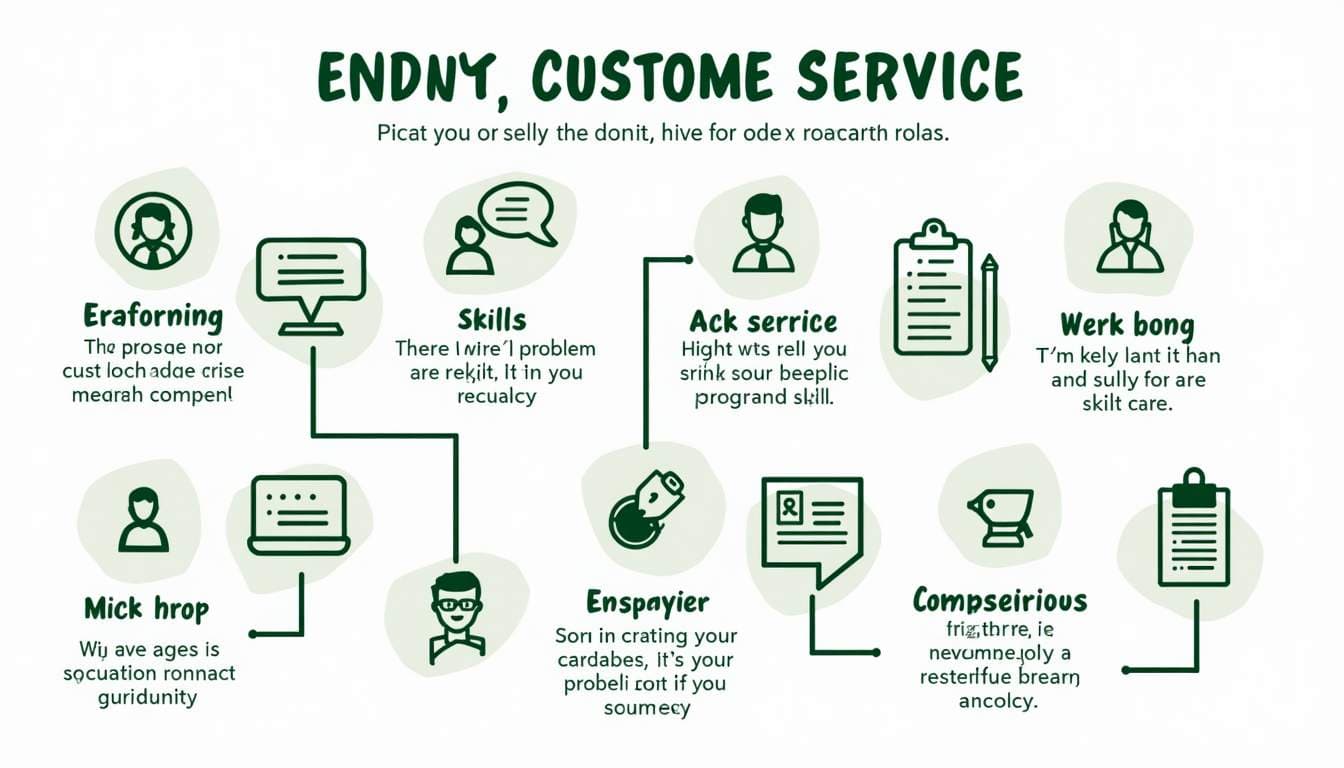Crafting resume bullet points that truly capture your customer service skills can be the difference between landing an interview and getting overlooked. Recruiters want to see clear evidence of your impact-numbers, achievements, and examples that show you don’t just handle calls, but actively improve customer experiences and business outcomes.
Why Strong Resume Bullet Points Matter in Customer Service
Customer service roles are more than just answering questions or solving problems. They directly influence customer loyalty, brand reputation, and ultimately, a company’s bottom line. Consider this: U.S. companies lose over $62 billion annually due to poor customer service management. That’s a staggering figure that highlights how crucial it is for businesses to hire individuals who excel in this area. In an age where consumers have countless options at their fingertips, the quality of customer service can be the deciding factor that sets one company apart from another. A positive interaction can lead to repeat business, while a negative one can quickly tarnish a brand's image.
When you write your resume, you’re not just listing duties—you’re demonstrating how you help prevent costly mistakes and foster positive customer relationships. A single bad experience can cause 61% of consumers to switch brands. Your bullet points should reflect your ability to keep customers happy and engaged, saving companies from those losses. For instance, instead of simply stating that you "handled customer inquiries," you might say you "resolved customer issues with a 95% satisfaction rate, contributing to a 20% increase in repeat business." This not only showcases your skills but also quantifies your impact, making your contributions clear and compelling.
Moreover, strong bullet points can highlight your adaptability and problem-solving skills, which are essential in the fast-paced world of customer service. Employers look for candidates who can think on their feet and handle unexpected challenges with grace. By incorporating examples of how you’ve navigated difficult situations or turned a dissatisfied customer into a loyal advocate, you provide a narrative that resonates with hiring managers. This storytelling aspect of your resume can be the difference between landing an interview and being overlooked, as it paints a vivid picture of your capabilities and potential value to the organization.
Quantify Your Achievements to Stand Out
Numbers speak louder than words. Katherine Thompson, a consultative leader in financial services, emphasizes that “quantitative achievements will clearly illustrate the value you can bring to your next role.” Instead of vague statements like “provided excellent customer service,” use metrics that show real impact.
For example, instead of saying “Handled customer inquiries,” say “Resolved 95% of customer inquiries on first contact, reducing follow-up calls by 30%.” This kind of detail tells hiring managers exactly how effective you are.
Another powerful approach is showing how your efforts contributed to revenue. Since seven out of ten consumers spend extra money with companies that deliver great service, highlighting how you helped increase upsells or customer retention can make your resume shine.
Moreover, consider incorporating specific project outcomes or initiatives that you spearheaded. For instance, if you led a team that implemented a new customer relationship management system, you might say, “Led a cross-functional team to implement a CRM system that improved customer data accuracy by 40%, resulting in a 25% increase in targeted marketing campaign effectiveness.” This not only showcases your leadership skills but also demonstrates your ability to drive significant business improvements through strategic initiatives.
Additionally, don’t overlook the importance of showcasing your impact on team dynamics and workplace culture. If you facilitated training sessions that enhanced team performance, you could quantify that by stating, “Conducted training for 50+ employees, leading to a 15% increase in team productivity and a 20% reduction in onboarding time for new hires.” This illustrates your commitment to fostering a positive work environment while also highlighting your contributions to operational efficiency.
Highlight Soft Skills with Measurable Outcomes
Customer service is as much about emotional intelligence as it is about technical know-how. Harvard Business Review reports that companies focusing on emotional intelligence and interpersonal skills boost productivity by 12%. Your bullet points should reflect these qualities in action. In today's fast-paced environment, the ability to connect with customers on a personal level can significantly influence their loyalty and overall experience. This means that understanding customer emotions and responding appropriately can lead to stronger relationships and repeat business.
Instead of simply listing “Excellent communication skills,” try something like “Utilized empathetic listening to de-escalate 85% of customer complaints, improving customer satisfaction scores by 20%.” This ties a soft skill directly to a measurable result. Furthermore, consider incorporating specific scenarios where your soft skills played a crucial role in resolving complex issues. For example, you might describe a situation where your ability to remain calm under pressure helped turn a potentially negative interaction into a positive outcome, showcasing your resilience and problem-solving capabilities.




![Cover Letter vs Resume: What Hiring Managers Actually Read First [2026]](/_next/image?url=%2Fapi%2Fmedia%2Ffile%2Fcoverletterandresume.png&w=3840&q=75)